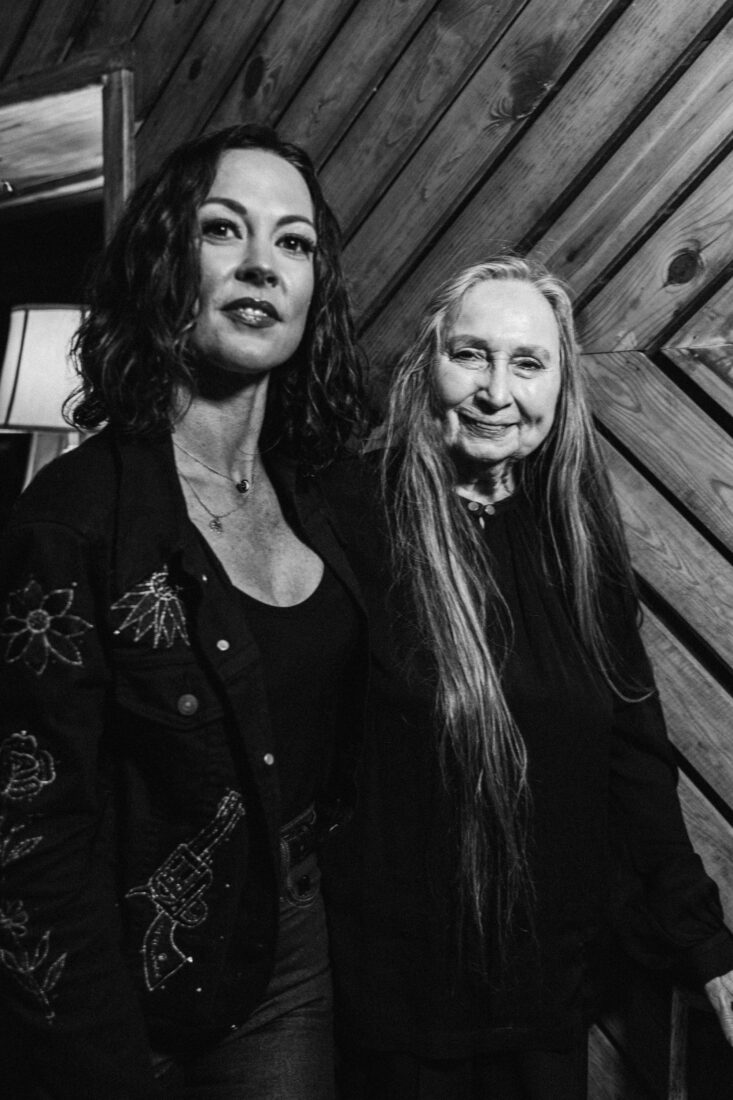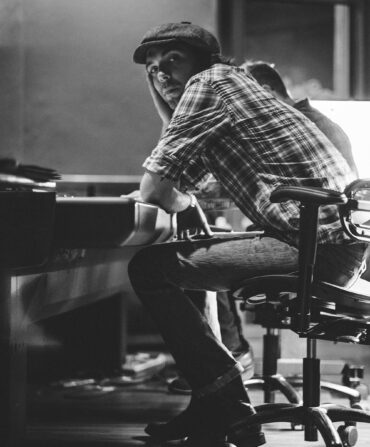By the time Amanda Shires got into the studio with Bobbie Nelson in the spring of 2021, she was about ready to call it quits on music. A string of bad recording experiences had left her reeling. But with the encouragement of friend and producer Lawrence Rothman, she found herself working on an album. And she thought she might want that album to include “Always on My Mind,” a song famously covered by Willie Nelson.
Shires knew her version of the song could be accompanied by only one pianist—Willie’s sister and longtime bandmate, Bobbie Nelson, whom Willie often called a musical prodigy.
Shires had grown up admiring Bobbie, who’d built a career as a side player—the type of musician Shires originally thought she wanted to be. Bobbie, in turn, had grown up adoring Bob Wills and His Texas Playboys—the band that gave Shires her first job as a professional musician at fifteen.
In the studio, the two played traditional tunes, happily traded the spotlight, and spent a lot of time laughing. By the end of that first session, they’d decided they should record an entire album together. Over six or so trips to a studio in Austin, Texas, that’s just what they did.
The resulting album, Loving You, comes out today. It’s an album of covers, but it plays like a passing of the torch, one Texas musician to another. Bobbie died last year at ninety-one after a difficult life marked by joy and forgiveness: She and Willie were almost taken from their grandmother at a young age because county officials couldn’t see how a woman could provide for children on her own. Later, Bobbie’s in-laws—powerful people in Hill Country—took her own three children away from her for similar reasons. (Bobbie eventually got them back; for more on her life, check out Me and Sister Bobbie, a book she co-authored with Willie.)
This album, Bobbie’s last, feels also like a love letter to the music she adored, shepherded through by Shires. G&G spoke with Shires about the collaboration.
Tell me about “Summertime.” It’s one of the most recorded songs in the world, yet this version feels so different from all the others I’ve heard.
I really like the way “Summertime” happened, because I never pictured myself doing that song ever, and when she said, “We’re going to do Summertime next,” I was like, “Okayyy, how am I going to do this, Bobbie? There’s so many good versions of it.” And she said, “Oh, you just forget all those versions and we play for each other.”
I loved the way she wanted to take it more dark with the approach. I think [that] really, really made the song different, to see the little dark shadows of that song. And when you compare that with her own childhood…there’s something kind of dark about that, that now also has hope.
Her story is incredible. She went through so much, and a lot of that was because of her childhood and the time in which she lived, and a lot was because she was a woman in music, which, as you’ve talked about so many times, is not an easy thing to be. You’ve spoken about wanting to leave the industry, even.
I really wanted to quit. I did learn even further about forgiveness and re-centering myself from her. When I would think back on the best times of my musical experiences, they stemmed from the Texas Playboys band, the first band I worked for and played with, where even though they were all old white men in the band, I was treated as an equal. I didn’t learn about this other stuff until later. So I try to refer back to that in everything I do, even now. Like, remember to play those tunes when you’re practicing to find your joy.
It’s sad that they still won’t play back-to-back country women on the radio. But who cares? Like I started saying, no one listens to the radio anyway. [Shires has spoken out publicly a number of times about the sexism and inequality that pervades the country music industry.]…Before, I kind of didn’t feel like I had any agency, and I guess now I do, and I guess I’ve gotten to the point where, if it’s not going to be fun, I’m just not going to do it. And I’m not going to blame the music for that. I’ve got to bring that up with the people who are bringing their egos and their projections onto me. Because at one point I just got really tired of being the nice girl all the time and taking it, you know?
I’ve been following your work for a while, and your albums are definitely getting darker. I think about that line, “Mama wants to change that Nashville sound, but they’re never gonna let her.” [The line comes from a song by her husband, Jason Isbell; Shires wore a tank top printed with it to the CMAs in 2017.]
I was on People’s worst-dressed list for that tank top! And meanwhile, dudes were out wearing T-shirts. But no, we were supposed to dress like prom queens or pageant winners. I don’t know if it’s age or the amount of exhaustive fighting and arguing I’ve been doing that has gotten me to the point of—I can’t keep covering up the fact that the world to me is darker than it appears, and I can’t keep putting on my pretty face and attitude because society pressures me to do that. Conforming might be an easier path, but that just—it just is a lie. And I can’t fit into that.
And yet this album also somehow feels really hopeful.
This sounds clichéd or cheesy, but Bobbie is right that love is the only way to get through all this stuff in the world—love and forgiveness. And sometimes you’ve got to give tough love, too. You’ve got to hold your own boundary, and keep doing the right thing, even in these things we’re doing when we talk about and bring awareness to issues. Sometimes it doesn’t feel like we’re affecting any change, but you might with one person, and that person begets another change, and I try to keep that in mind.
Bobbie kind of modeled love and forgiveness, and it’s easier to say than it is to do it, but if she could do it and still find joy and passion in her work and music—that’s what I hope people leave with. That feeling of—like it’s cheesy, but that love does conquer all.








